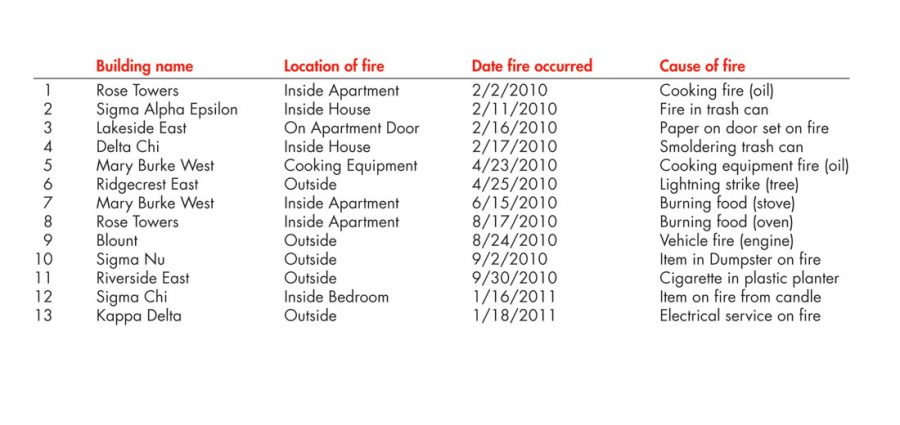Aesop’s fable of the boy who cried wolf rings true for some on-campus residents this year who feel desensitized to blaring fire alarms in their residence halls.
“They have been non-stop,” said Jake Clapp, a freshman majoring in legal studies who lives in Ridgecrest South. “It’s unnecessary, to be honest. The fire trucks come, which is completely out of hand, two to three times a month.”
Stefano Pindo, a freshman on the pre-law track who also lives in Ridgecrest South, said residents are not informed by the resident advisers, housing staff or the Tuscaloosa Fire Department of the causes behind the fire alarms and instead listen to rumors about the reason for their exoduses out of the residence hall.
“The RAs will never tell you, but they know, and the fire department will never tell us because it’s for some reason secretive,” Pindo said.
Tuscaloosa City Fire Marshall John Brook said fire alarms can be triggered by a number of causes other than fires themselves, such as a rare system malfunction, harmless smoke triggering a smoke detector, burning of popcorn in the microwave and vandalism.
“There’s always going to be the instance where a fire alarm is pulled and there is not a fire,” he said.
Brook said the initial dispatch of TFD involves a strategy to minimize the impact of false fire alarms. Instead of rushing all vehicles to the scene as “emergency units,” one vehicle does so and reports to the other “non-emergency units” if a threat to health, safety or property is at hand.
The number of prank fire alarms in particular have diminished, Brook said. He said the false alarms have not been persistent enough to be a problem for TFD or the University.
Alicia Browne, associate director for information and communication for Housing and Residential Communities, said prank fire alarms seldom occur.
“[It] is rare for one of our fire alarms to actually be pulled as a prank,” she said. “Fire alarms almost always sound because something is actually setting them off. Actual fires are also rare; it is more common that a student walks away from something that is cooking and excess smoke results, or a sensor can go off because of steam.”
Matt Simons, a freshman majoring in mechanical engineering who lives in Rose Towers, said in August a resident of Rose Towers left a pizza in the oven and forgot to return to check on the food, which resulted in a small kitchen fire.
The cause of the fire was labeled as unintentional in the 2010 Annual Campus Security and Fire Safety Report, which details the date, time and nature of fire emergencies from 2009 through 2011.
The report records that since February 2009, two instances of intentionally caused fires have occurred, neither of which qualified as arson. The other 20 instances are described as unintentional with one of them being a mechanical failure in the Kappa Delta sorority house.







